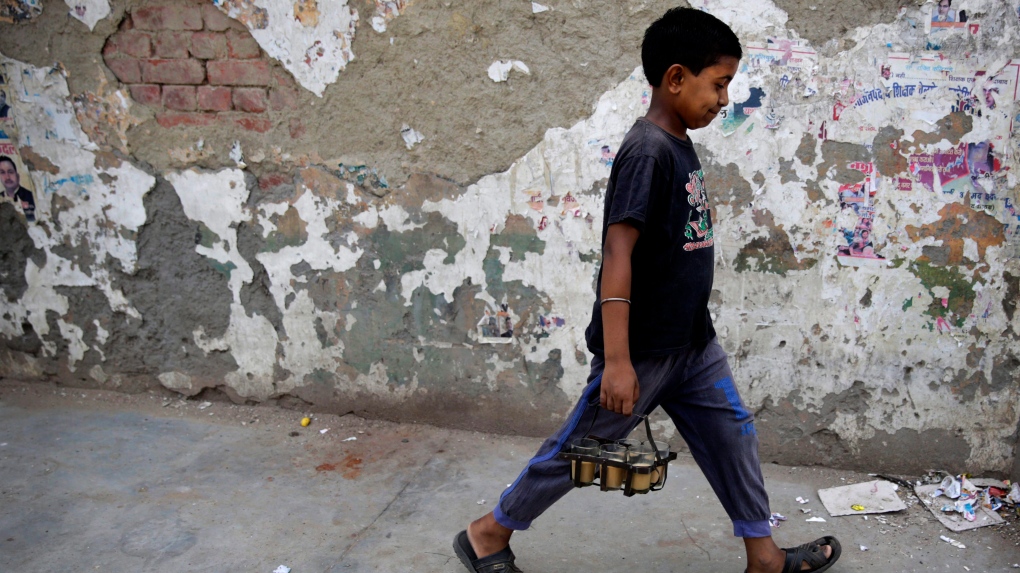
20 richest countries account for over half of 50 million people in 'modern slavery,' report says
CTV
The world's 20 richest countries are fuelling forced labour and account for over half the estimated 50 million people living in "modern slavery," according to a report released Wednesday.
The world's 20 richest countries are fuelling forced labour and account for over half the estimated 50 million people living in "modern slavery," according to a report released Wednesday.
The report by the Walk Free Foundation, a rights group that focuses on modern slavery, said six members of the Group of 20 nations have the largest number of people in modern slavery -- either in forced labour or forced marriage. India tops the list with 11 million followed by China with 5.8 million, Russia with 1.9 million, Indonesia with 1.8 million, Turkey with 1.3 million and the United States with 1.1 million.
"Most of the countries with lowest prevalence of modern slavery -- Switzerland, Norway, Germany, Netherlands, Sweden, Denmark, Belgium, Ireland, Japan, and Finland -- are also members of the G20," the report said. "Yet, even in these countries, thousands of people continue to be forced to work or marry, despite their high levels of economic development, gender equality, social welfare, and political stability, as well as strong criminal justice systems."
Last September, a report by the UN's International Labor Organization and International Organization for Migration and Walk Free estimated that 50 million people were living in "modern slavery" -- 28 million in forced labour and 22 million in forced marriage -- at the end of 2021. That was a 10 million increase in just five years from the end of 2016.
"Modern slavery permeates every aspect of our society," Walk Free Founding Director Grace Forrest said in a statement. "It is woven through our clothes, lights up our electronics and seasons our food" -- and it "is a mirror held to power, reflecting who in any given society has it and who does not."
This is most evident in global supply chains, where G20 nations import $468 million worth of products annually considered "at risk" of being produced by forced labour including electronics, garments, palm oil, solar panels and textiles, the report said.
Australia-based Walk Free said its 172-page report and estimates of global slavery in 160 countries draw on thousands of interviews with survivors collected through nationally representative household surveys and its assessments of a nation's vulnerability.
